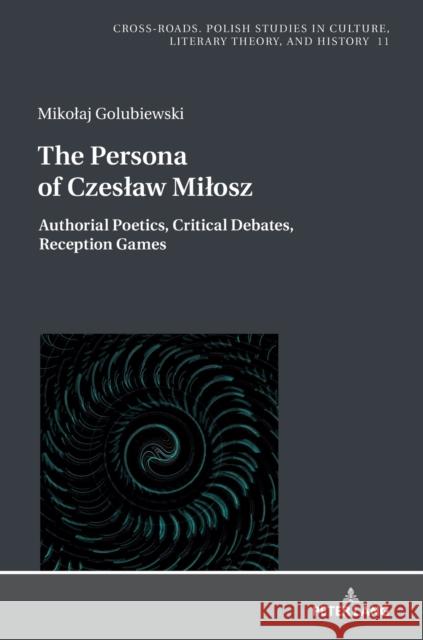The Persona of Czeslaw Milosz: Authorial Poetics, Critical Debates, Reception Games » książka
The Persona of Czeslaw Milosz: Authorial Poetics, Critical Debates, Reception Games
ISBN-13: 9783631762042 / Angielski / Twarda / 2018 / 244 str.
The Persona of Czeslaw Milosz: Authorial Poetics, Critical Debates, Reception Games
ISBN-13: 9783631762042 / Angielski / Twarda / 2018 / 244 str.
(netto: 295,26 VAT: 5%)
Najniższa cena z 30 dni: 306,85
ok. 30 dni roboczych
Bez gwarancji dostawy przed świętami
Darmowa dostawa!
The Persona of Czeslaw Milosz considers the poetry of Milosz in the innovative light of world literature and comparative literary studies. The author employs critical debates about Milosz in American and English literature to reshape the image of his reception. The book masterfully elaborates Milosz's poetics of perspectivism with a new method of analysis based on the category of authorial persona-between reception, poetics, and close-reading-separate from the literary persona. Each chapter encapsulates introductory information about Polish literature and moves beyond the horizon of Western expectations about Central European writers. Milosz's most discussed poems reveal new provocative power in the context of T. S. Eliot, Walt Whitman, William Blake, and Friedrich Nietzsche. To date, no work comprehensively examines Milosz's self-proclaimed contradictory nature and the nomadic quality of his works. As a result, scholarship remains scattered in diverse areas of interest, moving Milosz to the margins of world literature, instead of cherishing the diversity of perspectives he championed, among other places, in his Nobel Lecture. Without properly appreciating the poetics of contradiction proposed by Milosz and a critical analysis of his process of self-situation, we narrow his impact on literature only to Polish poetry, effectively allowing for a petrification of his innovative methods. The Persona of Czeslaw Milosz remedies this gap by revealing that, in contrast to Polish and American literary reception, Milosz was an eccentric eulogist of the concept of a multi-perspectivist persona. Through close examinations of Milosz's poetry, we learn that he develops a method of oscillating between ideas in search of lasting symbols common to all, beginning unfailingly with his current perspective. After all, Milosz persistently placed himself outside of the consensus and maneuvered the subject matter of his works to such an extent that his works became his philosophy of literature and the way of life.











